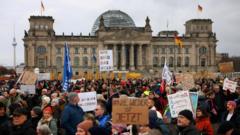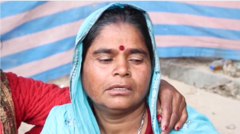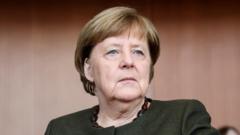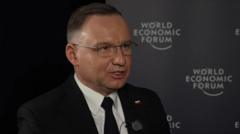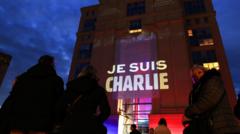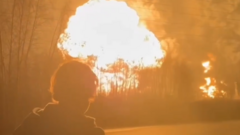In the aftermath of a devastating attack at Magdeburg's Christmas market, the community expresses sorrow mixed with anger over perceived security failures. The suspect, appearing in court, has connections to far-right sentiments, complicating the incident's political implications.
Tragedy and Tension: Magdeburg Mourns Christmas Market Attack Victims
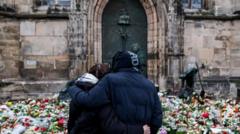
Tragedy and Tension: Magdeburg Mourns Christmas Market Attack Victims
As the city grapples with grief and frustration, questions arise over security protocols following the Christmas market tragedy.
Magdeburg’s festive charm is overshadowed by sorrow as the city navigates the aftermath of a tragic attack at its Christmas market. Once a bustling area filled with cheer and holiday spirit, it now stands deserted, sealed off, and shadowed by grief. The usually vibrant stalls selling mulled wine and gingerbread are closed, replaced by the somber presence of police patrolling the empty pavements.
Red candles flicker on the ground where tributes to the victims lay, presenting a heart-wrenching sight alongside individuals like Lukas, a local truck driver who felt it vital to pay his respects. “I wasn’t there, but this is my community,” he shared. “Everyone here is affected by this act. Justice must be served, and we can only hope for the families to find solace.”
Grief has not overshadowed anger, as many locals express their frustration regarding security measures leading up to the attack. Authorities have been criticized for failing to prevent a tragedy that took place when the assailant accessed the market through an emergency route. Michael, another local, voiced his concerns passionately: “There should've been better security. We should have been better prepared.”
Tensions grew as local residents gathered to voice their doubts about the trustworthiness of politicians, particularly targeting Germany’s Chancellor Olaf Scholz. “Our tax money is mismanaged,” one protester lamented. Complaints encompassed the government's response, with accusations that officials were deflecting blame onto the opposition amidst rising political stakes.
Simultaneously, a demonstration took place nearby during a memorial service, revealing a dark undercurrent of far-right ideologies. Protesters hoisted a banner reading “Remigration now!” and shouted divisive slogans about loyalty to Germany. In the light of these events, the broader implications for Germany’s political climate remain uncertain.
Investigations into the motives of the attacker, identified as Taleb Al-Abdulmohsen from Saudi Arabia, reveal alarming positions against Islam, with said connections to far-right figures and parties. As the nation reflects on security protocols and societal divisions, it grapples with the pain of loss while searching for answers and justice.

